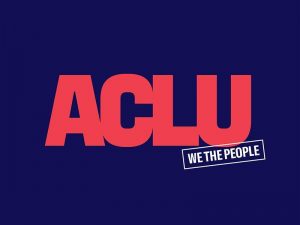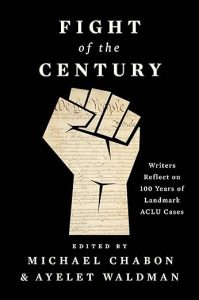
From The Rhode Island Chapter of The American Civil Liberties Union:
(ACLU Report at Bottom of Page)
The ACLU of Rhode Island released a report today detailing the written public comment policies of every city and town council and school committee across the state, finding that, while most council and committee meetings include at least some time for public comment, residents may be prevented from speaking by policies that contain overly restrictive time limits, rigid sign-up requirements, or “decorum” rules that may unconstitutionally restrict speech. The report offers a series of recommendations designed to promote meaningful public input at council and school committee meetings without unduly burdening the public bodies.
The report examined the policies both substantively — such as whether there were limits on what a member of the public could talk about — and procedurally, including the length of time allowed for comments and whether advance notice was required for a person to speak. The report includes detailed appendices, providing information about the public comment policies in each municipality and school district.
Some highlights from the report include the following:
- Four public bodies — the Providence City Council, North Providence Town Council, Little Compton Town Council, and New Shoreham School Committee — appear to offer no public comment period as a matter of routine during their meetings.
- About one-fifth of city and town councils and school committees set very brief overall time periods for public comment — some as short as 15 minutes — that, at least on paper, have the effect of vastly limiting the number of people who can speak when important issues affecting the community are being considered.
- About one-fifth of all city and town councils and a third of school committees limit individuals from commenting on topics depending on whether they appear on the agenda. The report notes that “barring members of the public from speaking on any matters that are not on the agenda means that a public body can avoid certain relevant topics that the public is concerned about by simply not including them on their meeting docket.”
- Many city and town councils and school committees prohibit any discussion of “personnel” or have broadly worded “decorum” rules, banning remarks that are deemed to be “personal attacks” or “uncivil,” “derogatory,” “impertinent,” or “inappropriate,” to cite a few. The report argues that these limitations “raise substantial free speech concerns.” Last year, for example, the ACLU sued the Warwick City Council when a resident was barred from speaking during a public comment period after he sought to raise ethical concerns about a council member.
- Some public bodies enforce strict advance sign-up requirements, including the Johnston Town Council which requires a prospective speaker to sign up at least five days in advance of the meeting.
In explaining the importance of robust public comment policies, the report emphasizes that:
“For elected officials, while these public forums may sometimes be burdensome and time-consuming, and occasionally even infuriating, to sit through, it is a fundamental component of public service. Indeed, it could be argued that public comment is an essential feature of local democracy and one of the best ways to promote both civic engagement and a connection between public bodies and the communities they serve.”
The report concludes with a series of recommendations, urging municipalities and school districts to reexamine their existing policies and make changes to remove unduly restrictive procedural or substantive limitations on public comment periods in order to ensure that residents have a fair opportunity to have their voice heard. The recommendations include: removing limits on the content of comments based solely on whether the topic appears on the agenda, generally scrapping overall time limits on public comment periods while setting reasonable limits on how long any individual can talk, allowing people to speak even if they fail to sign up in advance to do so, and eliminating unconstitutionally vague and broad “decorum” restrictions on speech.
The report also welcomed corrections and additions to its data, noting that the ACLU obtained the information by relying on the published agendas of the public bodies and rules governing the conduct of their public comment period that could easily be found on their websites, noting that such policies should be readily available to residents. The report, compiled by ACLU of RI staff members Megan Khatchadourian and Zoe Chakoian, complements one issued by the ACLU in May of last year that examined the post-Covid remote meeting policies of the same councils and committees.
ACLU of Rhode Island Executive Director Steven Brown said today: “The ability to share one’s opinion at a public meeting is a core feature of our democracy. This report should make it easy for officials and the public to evaluate current practices and consider ways to improve their policies and promote public participation.”
report_publiccomments_2024








Thank you Pat for sharing this extremely important information. I was a Civics teacher.